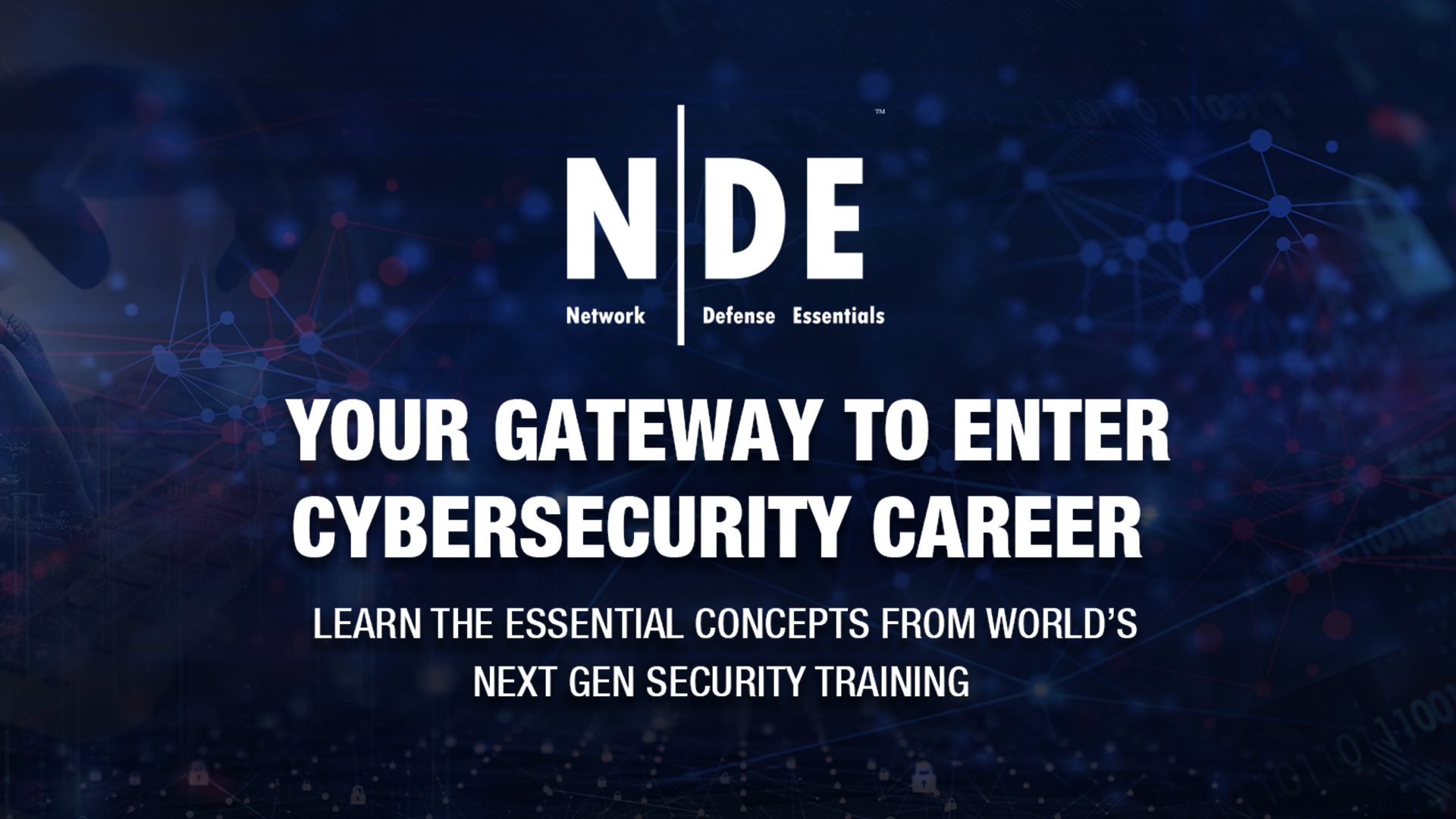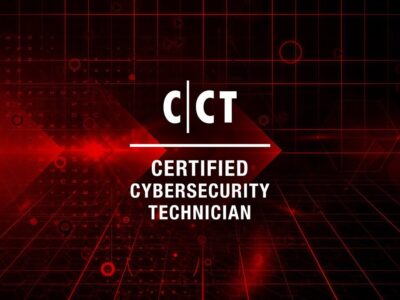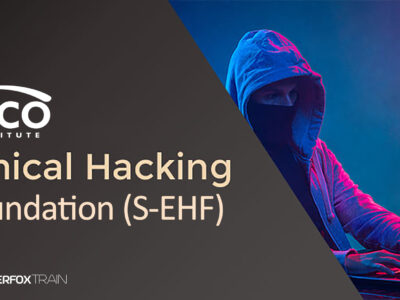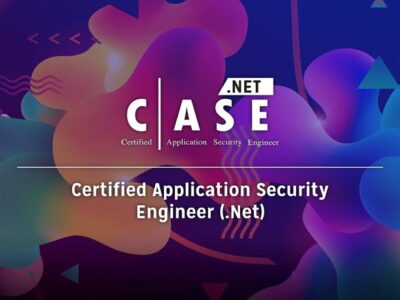Begin Your Cybersecurity Journey with Hands-On, Technical Foundational Skills in Network Security
Cybersecurity is very complex and broad; it has many areas of specialty. And sometimes, determining your area of specialization and developing essential foundational skills becomes a significant challenge.
Network Defense Essentials covers the fundamental concepts of information security and network defense. This introductory cybersecurity course is designed for today’s entry-level information security or cybersecurity careers and is ideal for learners aspiring to pursue a career in cybersecurity.
The course gives a holistic overview of the key components of Information Security such as Identification, Authentication and Authorization, Virtualization and Cloud Computing, Wireless Networks, Mobile and IoT Devices, and Data Security. The interactive labs component of this course ensures that learners receive the hands-on, practical experience required for a future in cybersecurity.
NDE-certified learners have an assured means of formal recognition to add to their resumes and show off their expertise and skills to prospective employers. The purpose of the NDE certification is to recognize the competency and expertise of a professional in network defense and information security skills, thereby adding value to their workplace and employer.
What is EC-Council Network Defense Essentials?
Network Defense Essentials covers the fundamental concepts of information security and network defense. This introductory cybersecurity course is designed for today’s entry-level information security or cybersecurity career professionals and is ideal for learners aspiring to pursue a career in cybersecurity.
The course gives a holistic overview of the key components of information security, which include identification, authentication, and authorization, virtualization and cloud computing, wireless networks, mobile and loT devices, and data security. The interactive labs component ensures that learners receive the hands-on, practical experience required for a future in cybersecurity.
N|DE-certified learners have an assured means of formal recognition to add to their resumes and demonstrate their expertise and skills to prospective employers. Put your newly acquired abilities to the test with an exhilarating Capture the Flag (CTF) Exercise seamlessly integrated in our Capstone project. This CTF is seamlessly integrated by live virtual machines, genuine software, and real networks, all delivered within a secure and regulated sandbox environment. With these exclusive hands-on, human-versus-machine CTF challenges you will develop the hands-on proficiencies essential for success in your cyber professional role.
Course Outline
Module 01: Network Security Fundamentals
- Fundamentals of Network Security
- Network Security Protocols
Module 02: Identification, Authentication and Authorization
- Access Control Principles, Terminologies, and Models
- Identity and Access Management (IAM) Concepts
Lab Exercise
- Implementing Access Controls in Windows Machine
- Managing Access Controls in Linux Machine
- Implementing Role-Based Access Control in Windows Admin Center (WAC)
Module 03: Network Security Controls – Administrative Controls
- Regulatory Frameworks, Laws, and Acts
- Design and Develop Security Policies
- Conduct Different Types of Security and Awareness Training
Lab Exercise
- Implementing Password Policies Using Windows Group Policy
Module 04: Network Security Controls – Physical Controls
- Importance of Physical Security
- Physical Security Controls
- Workplace Security
- Environmental Controls
Module 05: Network Security Controls – Technical Controls
- Types of Network Segmentation
- Types of Firewalls and their Role
- Types of IDS/IPS and their Role
- Types of Honeypots
- Types of Proxy Servers and their Benefits
- Fundamentals of VPN and its Importance in Network Security
- Security Incident and Event Management (SIEM)
- User Behavior Analytics (UBA)
- Antivirus/Anti-Malware Software
Lab Exercise
- Implementing Host-Based Firewall Protection with iptables
- Implementing Host-Based Firewall Functionality Using Windows Firewall
- Implementing Network-Based Firewall Functionality: Blocking Unwanted Website Access Using pfSense Firewall
- Implementing Network-Based Firewall Functionality: Blocking Insecure Ports Using pfSense Firewall
- Implementing Host-based IDS functionality Using Wazuh HIDS
- Implementing Network-Based IDS Functionality Using Suricata IDS
- Detect Malicious Network Traffic Using HoneyBOT
- Establishing a Virtual Private Network Connection Using SoftEther VPN
Module 06: Virtualization and Cloud Computing
- Virtualization Essential Concepts and OS
- Virtualization Security
- Cloud Computing Fundamentals
- Insights of Cloud Security and Best Practices
Lab Exercise
- Auditing Docker Host Security Using Docker-Bench-Security Tool
- Implementing AWS Identity and Access Management
- Securing Amazon Web Services Storage
Module 07: Wireless Network Security
- Wireless Network Fundamentals
- Wireless Network Encryption Mechanisms
- Types of Wireless Network Authentication Methods
- Implement Wireless Network Security Measures
Lab Exercise
- Configuring Security on a Wireless Router
Module 08: Mobile Device Security
- Mobile Device Connection Methods
- Mobile Device Management Concepts
- Common Mobile Usage Policies in Enterprises
- Security Risks and Guidelines Associated with Enterprises Mobile Usage Policies
- Implement Enterprise-level Mobile Security Management Solutions
- Implement General Security Guidelines and Best Practices on Mobile Platforms
Lab Exercise
- Implementing Enterprise Mobile Security Using Miradore MDM Solution
Module 09: IoT Device Security
- IoT Devices, Application Areas, and Communication Models
- Security in IoT-enabled Environments
Lab Exercise
- Securing IoT Device Communication Using TLS/SSL
Module 10: Cryptography and PKI
- Cryptographic Techniques
- Cryptographic Algorithms
- Cryptography Tools
- Public Key Infrastructure (PKI)
Lab Exercise
- Calculate One-way Hashes using HashCalc
- Calculate MD5 Hashes using HashMyFiles
- Create a Self-signed Certificate
Module 11: Data Security
- Data Security and its Importance
- Security Controls for Data Encryption 8
- Data Backup and Retention
- Data Loss Prevention Concepts
Lab Exercise
- Perform Disk Encryption using VeraCrypt
- File Recovery Using EaseUS Data Recovery Wizard
- Backing Up and Restoring Data in Windows
Module 12: Network Traffic Monitoring
- Need and Advantages of Network Traffic Monitoring
- Determine Baseline Traffic Signatures for Normal and Suspicious Network Traffic
- Perform Network Monitoring for Suspicious Traffic
Lab Exercise
- Capturing Network Traffic using Wireshark
- Applying Various Filters in Wireshark
- Analyzing and Examining Various Network Packet Headers in Linux using tcpdump
Training & Exam
Training Details: Self-paced on-demand video led by world-class instructors along with handson labs.
Pre-requisite: No prior knowledge requirements.
Exam Details:
- Exam Code: 112-51
- Number of Questions: 75
- Duration: 2 hours
- Test Format: Multiple Choice
Course Features
- Lecture 0
- Quiz 0
- Duration 14 hours
- Skill level All levels
- Language English
- Students 2
- Assessments Yes
Features
- 14+ hours of premium self-paced video training
- 11 Lab Activities in a simulated lab environment
- 750+ pages of ecourseware
- Capstone Projects with Real-World CTF Challenges
- Year Long access to courseware and 6-month access to labs
- Proctored Exam Voucher with 1 year validity
- Increase your value in the job market to advance your career.
- Globally Recognized EC-Council’s Certificate
Target audiences
- School students, graduates, professionals, career starters and changers, IT / Technology / Cybersecurity teams with little or no work experience.
- High-school students who aspire to get an early start on their cybersecurity career and master the fundamentals of security online.
- College or University students who are preparing for a cybersecurity career and aiding their IT education.
- Working professionals who are preparing to start with cybersecurity or switch to the field from another domain.





